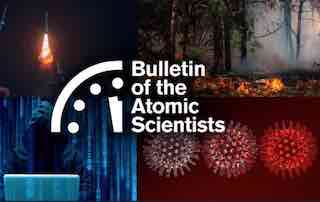
One fall day in 2006, Alexander Litvinenko, a Russian defector who once worked in Moscow’s secret intelligence community and who became a prominent Kremlin critic in the United Kingdom, ate sushi for lunch before meeting with two former colleagues from his spy agency days at the Pine Bar in London’s Millennium Hotel. The anti-corruption crusader was reportedly set to travel to Spain to investigate the Russian mob there. But just a few short weeks later, Litvinenko was dead. He was poisoned by a radioactive substance in his tea called polonium-210, allegedly mixed in by his former security service colleagues.
Litvinenko’s poisoning preceded a handful events, ranging from assassinations to large-scale chemical release attacks, that involved the use of unconventional weapons in the last several years—a dangerous indication that certain governments are both working on these weapons and showing an increased willingness to use them. Meanwhile, Russia has mounted an increasingly aggressive disinformation campaign that accuses the United States of harboring an illegal bioweapons program, a claim that credible sources have noted is not substantiated by fact. It adds up to a troubling picture: Important norms against the use of chemical weapons have already eroded, and norms against the use of biological weapons may be next. One of Litvinenko’s alleged killers, Andrei Lugovoi, is now celebrated as a hero in some Russian circles and is a deputy in the Russian Duma, or parliament.
The fraying of the norms against the use of biological and chemical weapons couldn’t come at a more important time.
The Biological Weapons Convention, the treaty that bans the development, production, stockpiling, acquisition, and transfer of biological weapons, is up for its every-five-years review at a time of both serious geopolitical friction and serious evidence of the risks that biological events like the COVID pandemic can pose.
Complete analysis can be read here: Yong-Bee Lim, As bioweapons negotiators prepare to meet amid a pandemic and torrents of disinformation, can they accomplish anything? Bulletin of Atomic Scientists, July 15, 2022